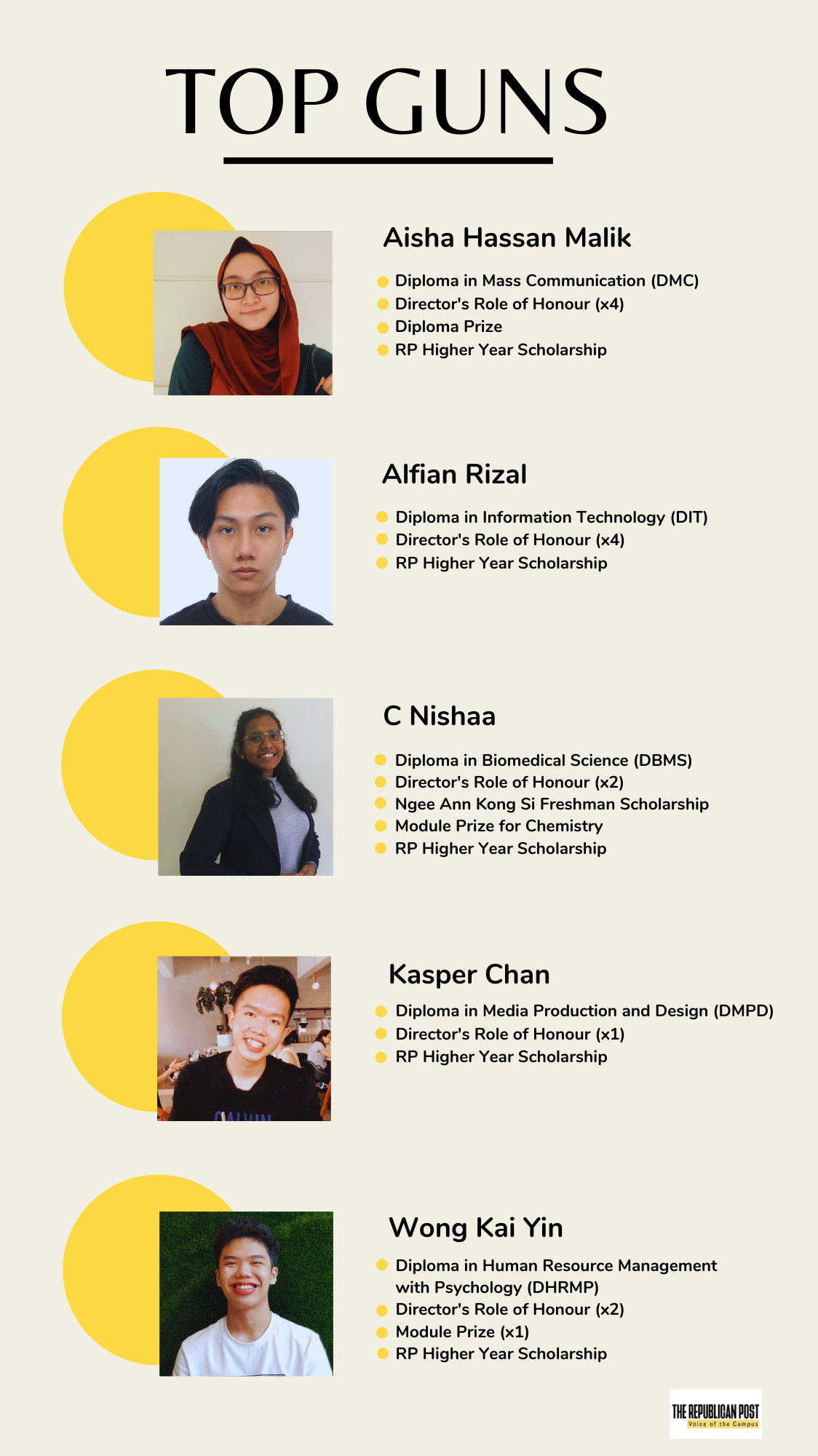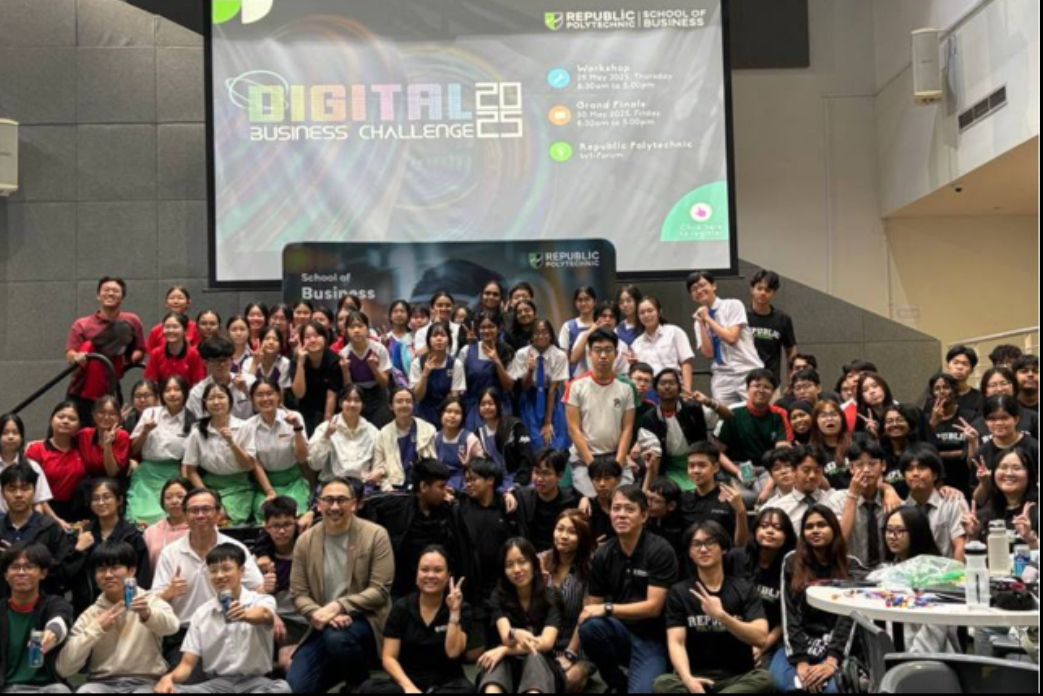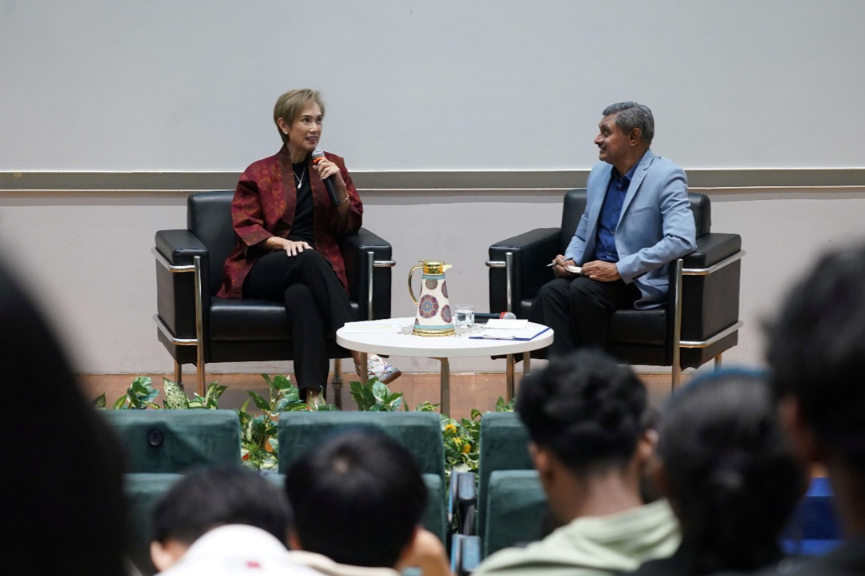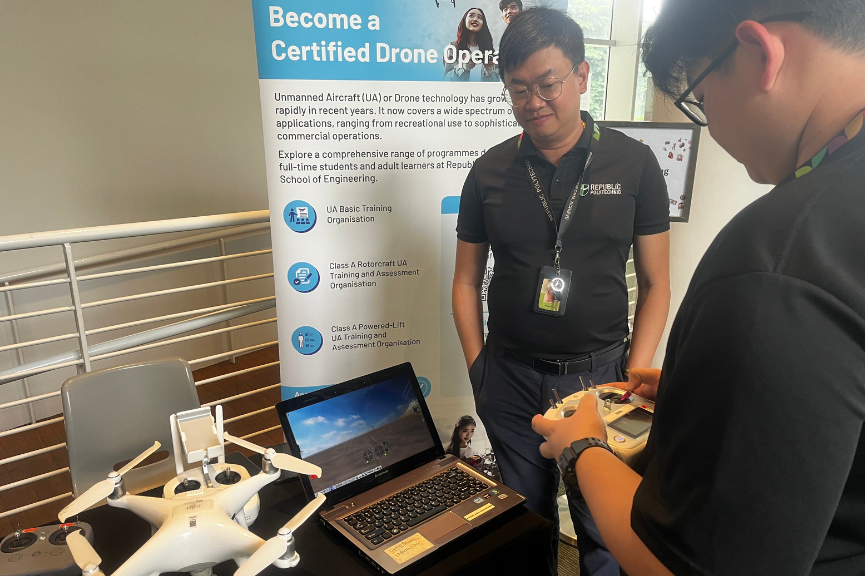So, you are now officially a polytechnic student. You have diligently downloaded lesson packages and done your pre-class readings. You’ve cut down on part-time work to concentrate on the daily deliverables. You are all set to ace the modules.
What does it take to score A? You might have gathered from seniors that it has to do with writing substantive Reflection Journal; asking questions in class; and submitting all deliverables by 2359h. Five top students (see list below) from various diplomas share how they did it.

ONE SIZE DOES NOT FIT ALL
Diploma in Information Technology (DIT) student Alfian Rizal, 21, has been on the Director’s Roll not once, but four times in his three years in RP. He says that it is important to pay attention in class, understand the concepts taught in class and to write substantive Reflection Journal to show that you can apply these concepts in real-life.
Another student, C Nishaa, 23, a final-year Diploma in Biomedical Science(DBMS) student, says every module is different, therefore she encourages students to discuss with lecturers how best to navigate each module.
The key to studying theory-based modules is understanding concepts. Nishaa recommends taking notes after lessons, using mud maps and watching educational videos to aid understanding. Find a study method that works for you.
Understanding the grading rubrics and your lecturer’s teaching approach may also be helpful, says Kasper Chan, 20, a final-year Diploma in Media Production and Design (DMPD) student.
“Ask your lecturer how the work is graded and what you can do to get an A,” adds Kasper, who is on the Director’s Roll and has distinctions for several modules. “Different lecturers have different approaches and teaching styles.”
DAILY GRADES: A BLESSING IN DISGUISE?
In RP, daily grades count towards the final GPA, therefore, it pays to be conscientious in class.
“Team grading usually counts for a lot in your daily grade so try to work well with your team,” advises Wong Kai Yin, 19, a final-year Director’s Roll Diploma in Human Resource Management with Psychology (DHRMP) student.
In the end, you still need to do well across all the different criteria to secure a high grade. While it may seem daunting, grades and feedback from lecturers give students a way to consistently evaluate their progress and improve.
“Take your daily grades very seriously. It can really save your GPA,” stresses Aisha Hassan, 20, a final-year Diploma in Mass Communication (DMC) student. “Exams and graded assignments can be difficult to score, and you only see those grades with your GPA so they aren’t very motivating.”
Aisha, who has a Diploma Prize, adds: “If you have an A, you’ll want to work harder to keep getting As. If you get anything below that, you’ll want to know how you can improve.”
Daily grades and lecturer feedback are good ways to gauge your understanding of lesson concepts and fill in knowledge gaps. Evaluate your efforts consistently and take necessary action.
LOVE LEARNING!
However, good grades may not always be the culmination of result-driven efforts, which can be detrimental in the long run. While some students may find long-term motivation in their grades, this may not work for everyone.
Motivation derived from love of learning may do away the notion of academic success associated with burnout and poor mental health – Alfian and Kasper have a passion for their field so innate it drives their success.
“You’ll naturally find it easier to put in the extra effort when you do things you love,” says Alfian.
It’s also important to keep going on days when you feel like throwing in the towel. Kasper keeps up with habits such as reading about topics he is interested in after classes.
“Make your reason for starting and your progress a source of motivation,” says Kasper.
“Your youth and journey in a polytechnic only happens once. When it is over you cannot turn back time, so I believe you should do it once and do it nicely.”
Kaspar Chan, 20, final-year DMPD student
ORGANISE YOUR EFFORTS
We’re all familiar with 2359 deadlines in RP – Organising your efforts and planning your time will help you meet your deadlines.
“Self-discipline is important. Creating to-do lists, setting clear goals, and monitoring your progress can really help you do your work well,” explains Aisha, who enjoys creating written to-do lists.
Instead of relying on spontaneous bursts of energy, organise your goals and daily tasks. Keeping a to-do list can help you stay organised and prioritise your tasks.
When the workload feels too much, Alfian suggests breaking tasks into smaller ones. Start with small, organised progress and set a deadline for yourself.
For example:
- Self and peer evaluations
- Revise lesson resources and concepts
- Quiz
- 30 min break
- Find example for RJ question
- RJ
- Proofread
- Submit
Setting rules can also help you stay on track. For instance, studying a week before exams and completing daily deliverables by 10pm.
TIME MANAGEMENT IS KEY
Don’t take on more than you can chew – Extra projects and leadership positions in Interest Groups can boost your portfolio, but it can be counterproductive if you cannot manage your time.
“Think about whether you’re ready to take on extra roles and commitments,” notes Aisha, who is involved in several roles and projects. “You don’t want your commitments to clash. If not, you’re making it hard on yourself, and it’ll be easy to burn out.”
Nishaa admits that she struggled with time management, juggling her studies with her part-time job, helping out at her parents’ hawker stall, and leisure. Although she managed to plan her time more effectively by balancing study and work, not everyone can.
Some value their leisure time more than others – Kai Yin plans his studies and leisure in a linear timeline, even taking a two-hour nap after school. Alfian also takes his mind off studies once he is done with his schoolwork.
That said, don’t cut corners and submit subpar work to compensate for other commitments. In that case, perhaps you need to rethink your priorities and manage your time better.
“If you fall, cry your heart out and then get back up. Life goes on and it doesn’t stop with just one failure. Especially since we’re in a fast-paced society like Singapore, if you never try getting back on your feet, you may never catch up.”
Aisha Hassan, 20, final-year DMC student
TAKE BREAKS AND UNWIND
Academic burnout is real, so don’t forget to take breaks, unwind, and indulge in things you enjoy. Make the conscious decision to step away from your laptop to unwind whenever you feel restless doing work.
Taking breaks is proven to increase students’ productivity, success, and develop a positive learning mindset. It also helps to reward yourself between study sessions, such as having a snack or playing your favourite game.
Aisha takes small breaks to hang out with friends, play games or take naps, timing her breaks to stay on track. Alfian goes for drives, Kasper takes a nap, Kai Yin puts on a good playlist and chats to friends, while Nishaa enjoys a walk or a cup of coffee in solitude.
PARTICIPATE AND ASK QUESTIONS
Being engaged in class discussions to learn is more important than participating for the sake of it.
However, participation may be quite taxing for those who prefer to fly under the radar. Speaking up is good to maximise learning, but you also need to know your limits without burning out.
“I’m incredibly introverted, but I know when and how to focus my energy,” notes Aisha. “Sometimes if I spend too much energy on participation, I won’t have energy to do my RJ.”
But sometimes it’s good to step outside your comfort zone, as it can improve your memory, critical thinking, and public speaking skills while learning new things.
“Ask questions about the topic, and even beyond that,” Aisha urges. “If I can clarify even the smallest doubts, I will be able to complete my deliverables better.”
“Especially ask about RJ and you can definitely improve,” she adds.
Do not hold back with participation, though you can always approach your teammates or your lecturer after class to clarify doubts too.
LEARN FROM OTHERS
Besides 2359 deadlines, teamwork opportunities are another big thing in RP. Take the chance to learn and collaborate with the many bright minds around you!
“RP revolves around many teamwork opportunities and we learn different things from different people,” Nishaa says. “Friends can help each other and move forward together whenever facing difficulties.”
Echoing Nishaa’s thoughts, Kasper adds: “Hearing different perspectives on topics helps to broaden and deepen my knowledge of it.”
Aisha also recommends free tutoring, as helping others improves your own understanding of concepts. Surround yourself with motivated peers, learn from those who are successful (hence this article), and seek help from your lecturers.
LAST BUT NOT THE LEAST
Top students don’t necessarily have to be smarter or grind endlessly; rather, they’ve found effective habits and methods for success.
When it comes to cutting corners to succeed in education, there is no single secret to success since we all have different methods and motivators that drive us to greater heights – but consistency is key.
Take these small steps towards your road to success by making the right choices and introducing new habits. Wishing all our students a great semester ahead!






